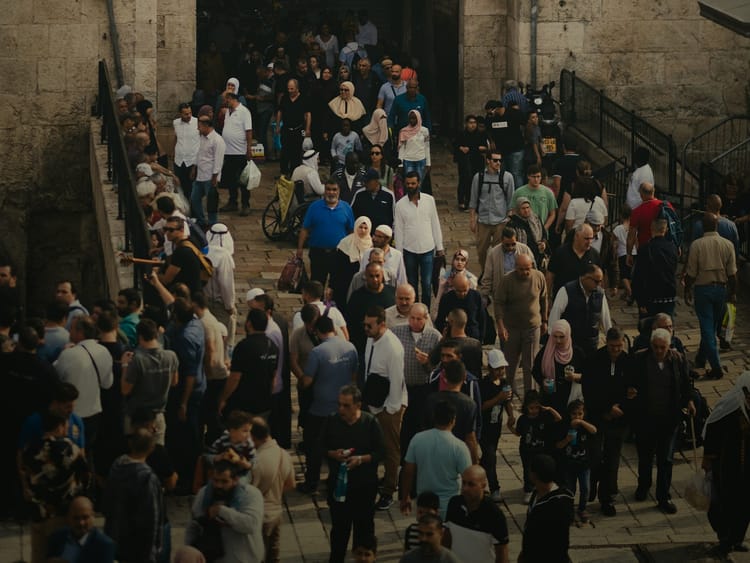As Greeks to the Romans

Recently in The Signal: Why are people in the United States eating record amounts of meat? Glynn Tonsor on a mysterious outlier trend in the Western world.
Today: “The argument in favor of these systems is ultimately about speed: Combat now often happens so fast that the human operator can’t keep up—and the operator’s communications with a weapon might get cut off. This argument can become self-fulfilling, because the faster combat goes, the stronger the case becomes that we need to automate weapons systems just to keep up. So we’re in a new arms race—focused on combat acceleration.” What are the risks of “killer robots” to civilians? Lucy Suchman on the automation of modern warfare.
+ Why is the U.K. so dependent on the U.S.?
& new music from A Sagittariun.
First: what we’re tracking for this week’s member’s despatch …
India‘s attack on Pakistan
The Indian Armed Forces bombed nine sites in Pakistan and Pakistan-controlled Kashmir early Wednesday morning—in retaliation for the killings of 26 Indians by Islamist militants at a tourist site in the part of Kashmir controlled by India. India says it hit training camps and other sites connected to Islamist fighters. Pakistan says 31 people were killed and 57 wounded, including several children.
- Indian officials say they targeted the groups Lashkar-e-Taiba and Jaish-e-Mohammed, alleging they’ve been freely operating from Pakistan. India has previously held these groups responsible for some of the deadliest terror attacks in the country’s history.
- Pakistani Prime Minister Shehbaz Sharif says India “will have to suffer the consequences” of the airstrikes, and he authorized the military to take “corresponding” action against India. Pakistan denied the existence of any terrorist camps or infrastructure in the places India struck.
- Pakistan says it downed five Indian aircraft during the raid, though the details aren’t certain. It appears the Indian planes didn’t cross into Pakistani airspace, so it’s unclear how Pakistan was able to hit them.
Media reports are asking whether or how much the two countries will escalate the conflict, given each side’s domestic political tensions amid international pressure for calm.
As Indian and Pakistani leaders decide what to do next, a key aspect of the context is that millions in each country feel deep antipathy toward those in the other. It’s a hostility grounded in religious and nationalist identities; it goes back even before the countries split into modern India and Pakistan in 1947; and though this antipathy has changed shape since, it remains powerful—and always potentially influential on the countries’ political leaderships—today.

Germany‘s uncertain new government
Friedrich Merz was confirmed as chancellor on Tuesday in a vote by the German parliament, the Bundestag—eventually: Merz didn’t win enough votes in the governing coalition—his center-right Christian Democrats and the center-left Social Democrats—in the first round of secret balloting. It’s the first time that’s happened since World War II.
- Most analysts are saying legislators wanted to send a message of protest against either the precarious left-right coalition or Merz’s policies and personnel choices since his party won national elections in late February.
- The Christian Democrats have lost ground in opinion polls since—and are now roughly tied with the populist-right Alternative für Deutschland. Last week, German intelligence services designated the AfD an extremist organization—citing its officials’ harsh rhetoric against ethnic minorities, use of Nazi slogans, and dismissal of the Holocaust.
- Merz made his first trip as chancellor on Wednesday, traveling to France to meet President Emmanuel Macron and announce the formation of a new joint council for defense and security.
Merz’s trouble getting enough votes in the first round appears to be a sign that his coalition might have trouble sticking together for tough policy decisions later. But it also appears to be part of a larger pattern, in which France and other European countries are having trouble forming strong, capable governments—because voters are increasingly splitting their votes more parties that don’t have a lot in common. … See Matthias Matthijs, ‘A leadership void.’
This edition, produced in partnership with the Human Rights Foundation, features conversations—with Ben Freeman, Miranda Patrucić, Justin Callais, and Josh Rudolph—on how authoritarian states build political influence in the U.S., why dictators keep disrupting so many other countries, why autocratic corruption is such a problem for democratic life, and what democracies can do about it.

Meanwhile
Researchers in Mexico announced in a paper last week that they’d successfully moved 18 captive-born axolotls—a critically endangered aquatic salamander native to lakes in the Mexican capital—to wetlands around the city. The axolotls have thrived in their new, natural habitat, which doesn’t always happen with animals born in captivity. The result gives hope for the future of the species: “The exotic aquatic critters are also a favorite among medical researchers, who hope that the amphibians’ extreme regenerative abilities—down to the ability to restore their own brain, heart and lungs—could eventually help doctors better treat catastrophic injuries in people.”
Feature

Books / from the member’s despatch
Why is the U.K. so dependent on the U.S.?
Members play a crucial role in backing our mission to develop a new genre of independent current-affairs coverage—for less than one fine cup of coffee every couple of weeks. Support The Signal.
Coming soon: Victor Shih on why millions of manufacturing jobs are leaving China …







